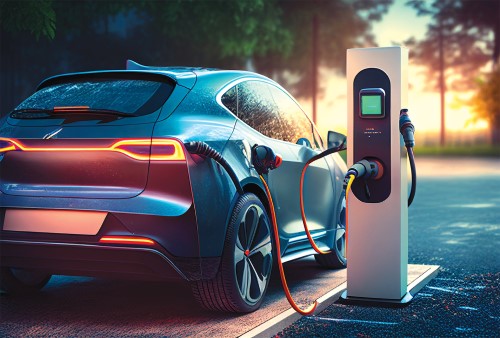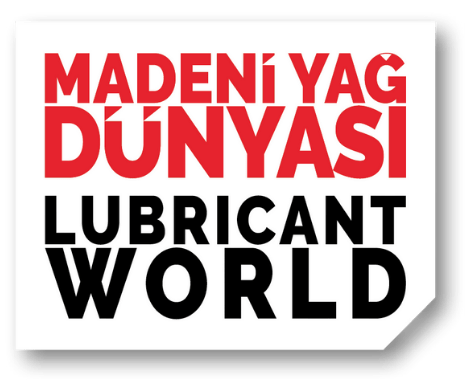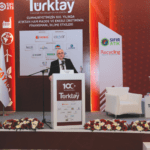As electric vehicles become widespread, the structure of complementary products and services required by the automotive industry will undergo a major change. Antifreeze additives will become a critical component of the industry, especially in regulating the operating temperature of vehicle batteries and reducing the conductivity of the fuel cells.
In our interview with Roberto Ghini, General Manager of Tecnofluid, the Italian ester and antifreeze additives manufacturer, he drew the attention on this transformation in the automotive industry and the future of the antifreeze market.
As Tecnofliud how do you evaluate the antifreeze market in the world?
Tecnofluid sells all over the world. Apart from North America, we have a good position in the market. Therefore, we can closely monitor developments in the market. As you know, antifreeze market is connected to the automotive market and it is developing rapidly despite the current crisis environment. The sector is expected to grow by 3-5% per year in the next 20 years. Besides, the issue of the electric transmission is not going to affect antifreeze. Antifreeze will become an even more critical component of the automotive industry as it will be a key element in regulating the operating temperature and preserving the life of the batteries in electric vehicles. So, the role of the coolants in the near future will be also heating. For example, hybrid vehicles normally do not have the direct start in electric modes. You have to use the classic engine in order to stabilize the temperature and then you switch to electric mode. Therefore, I expect this industry to grow substantially in the near future.
What do you think about current situation of the antifreeze market in Türkiye?
Our relation with Türkiye has been a success story. I think we have gained a significant market share in the Turkish antifreeze market in 15 years. What I have seen during this time is that big multinational brands stopped to produce in Türkiye and that the trend is towards supplying finished products. Another observation is that there is a strong concern regarding the cost. The more updated is a formula, the more is the cost. Cost concerns create resistance of the Turkish market for technology upgrades. I think, nowadays 80-90% of the Turkish market is made by inorganic formulas. However, we have to consider that nowadays there is no European OEM having current working specifications for inorganic formulations.

What is the importance of using package additives in production of antifreeze?
Formulating an antifreeze is much more difficult than formulating a lubricant. And furthermore, there are really a few people having the experience to do this right and on time. Therefore, if you have a reliable supplier, using a package, saves time and costs by eliminating the preoccupation of constantly testing and developing formulas. Also, if you were to make all of the tests, they take around one year and nobody can assure you that the formula will pass. If you make the real calculations in terms of production cost, you have only advantages in using a package.
How do you see the future of this industry in 5 or 10 years?
The biggest transformation will be the transition to the electric vehicles. Changing technology will require new formulas. In terms of antifreeze, new formulas different from the current ones will emerge. The antifreeze will become even a more critical component. Because batteries need to be optimally working in a certain temperature range that is changing. The same goes for fuel cells. In fuel cells you have hydrogen, which is transformed into electric power. The fluids pass in direct contact with the cells. So, this means that there must be a very low conductivity, otherwise the system is affected.
Could you tell us about the content and importance of antifreeze formulations to be used in electric vehicles?
A lot depends on the choice of the OEM. But what can be expected is eventually the use of glycol-based water free formulations. Because glycol can absorb water and the system remains stable at the end. Basically, if you want a good system and good thermal management, when you have to dissipate heat, you need water. You can use the normal antifreeze in the applications with external cooling of batteries. When you shift to EVs, you need a product that should remain water-glycol based, but with a very special inhibition.
The challenge is to keep a very good heat dissipating. That can be done optimally with water or water-glycol and keeping the conductivity that is compatible with the system. You know, every salt is increasing the conductivity. Therefore, if you choose the water-glycol, you have to choose the ANIONIC inhibitors. Due to the new formula requirements of a starting conductivity under class 5, the point is to keep this conductivity stable. Fuel cell systems are hydraulics. So, we can say they have a kind of self-protection, when the conductivity of the cooling system increases too much, they get blocked. Normally they are equipped with ionic resin to keep the conductivity low. But if the ionic filter, the only freezing filter gets stuck, blocked or broken, you must have a formulation in your fuel cell that allows for at least for few days to keep this conductivity low. Otherwise, the engine may suddenly stop while you are driving.




